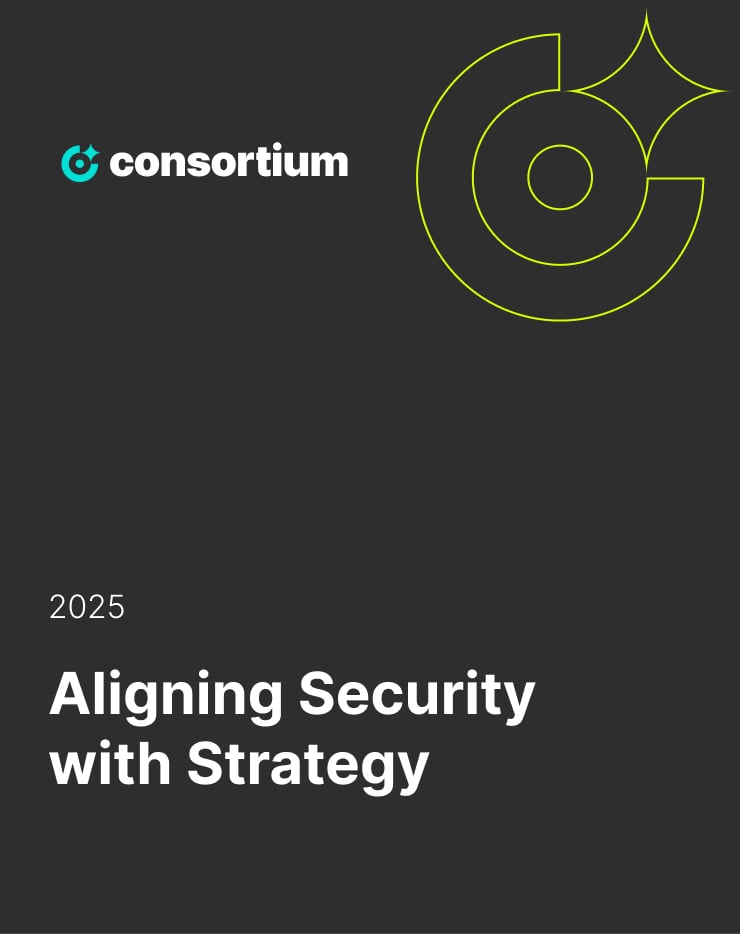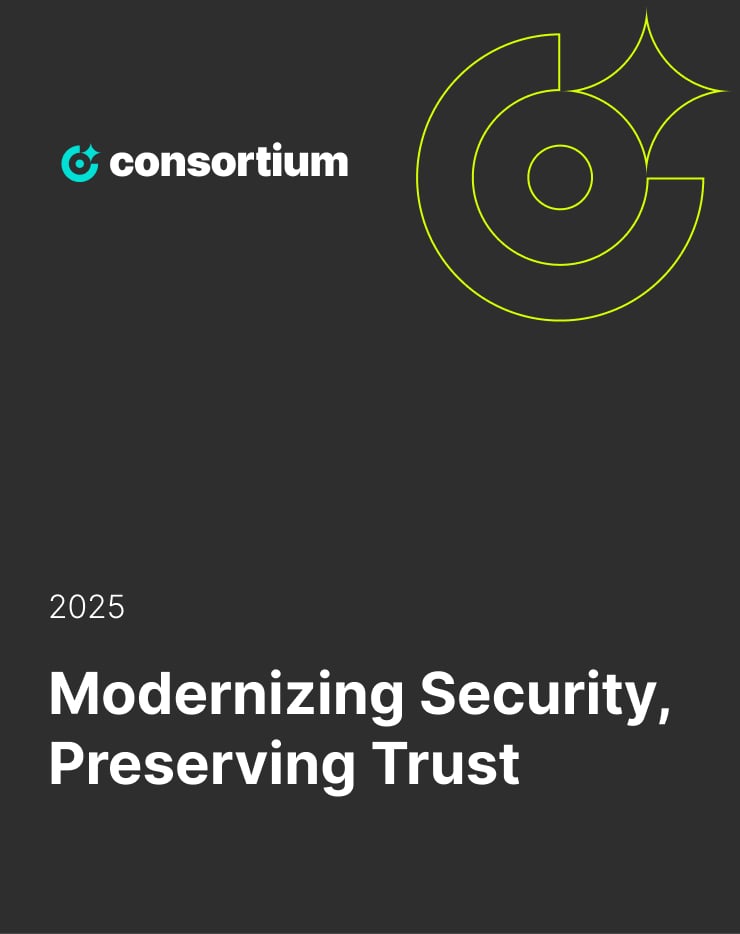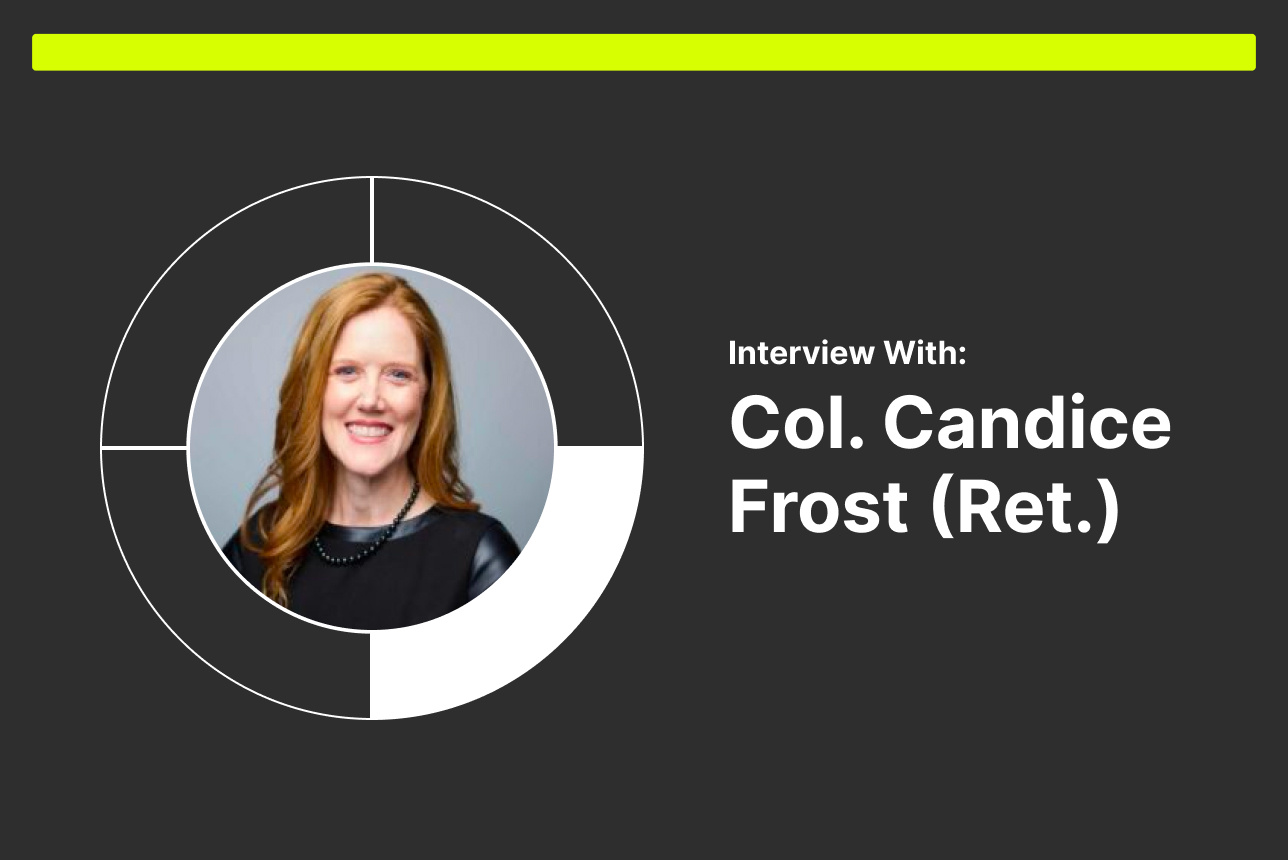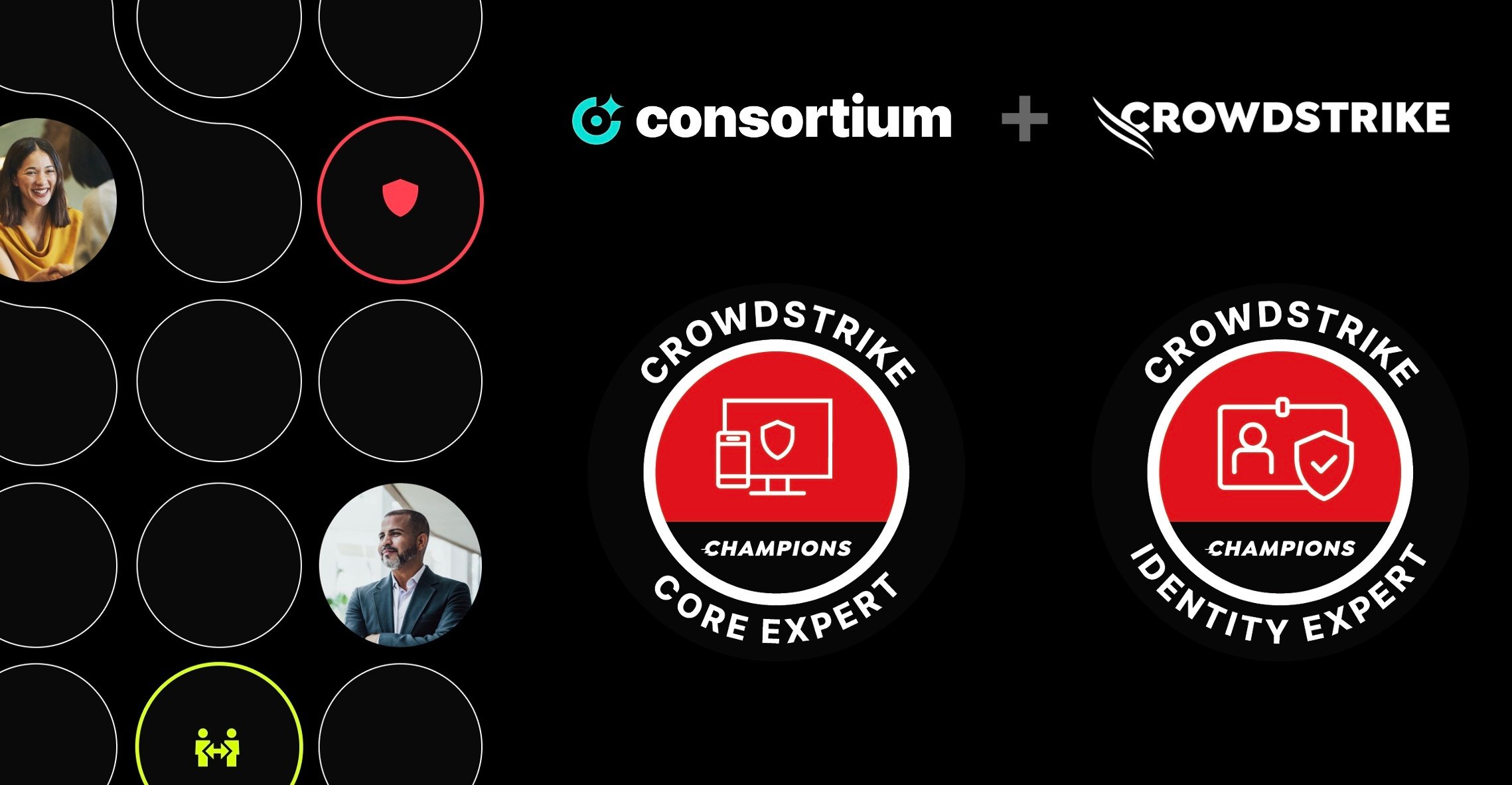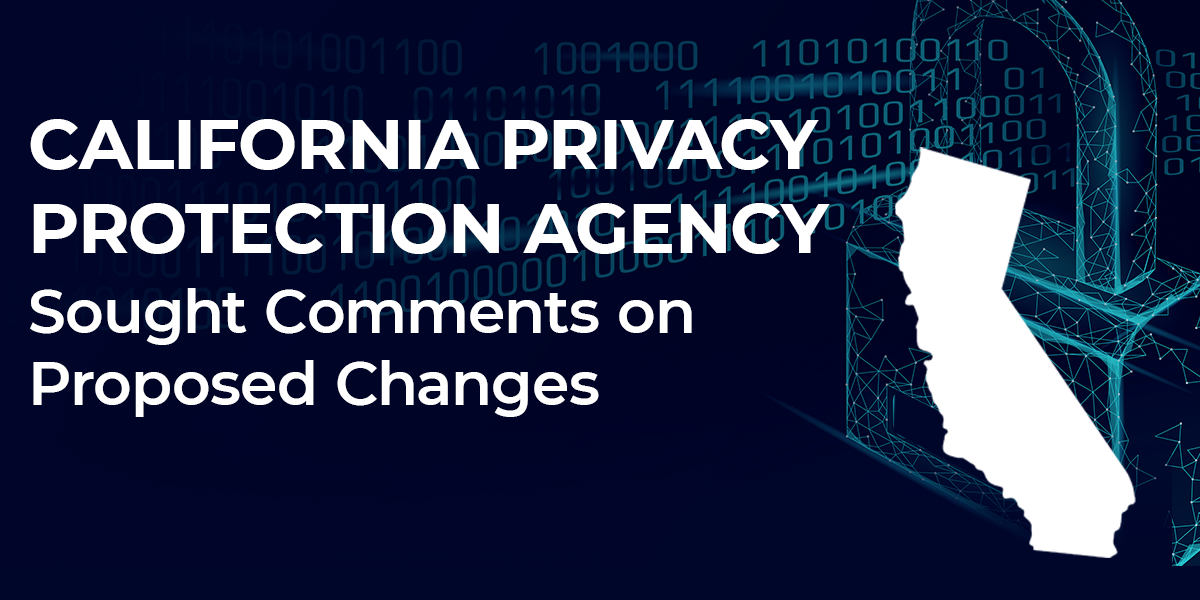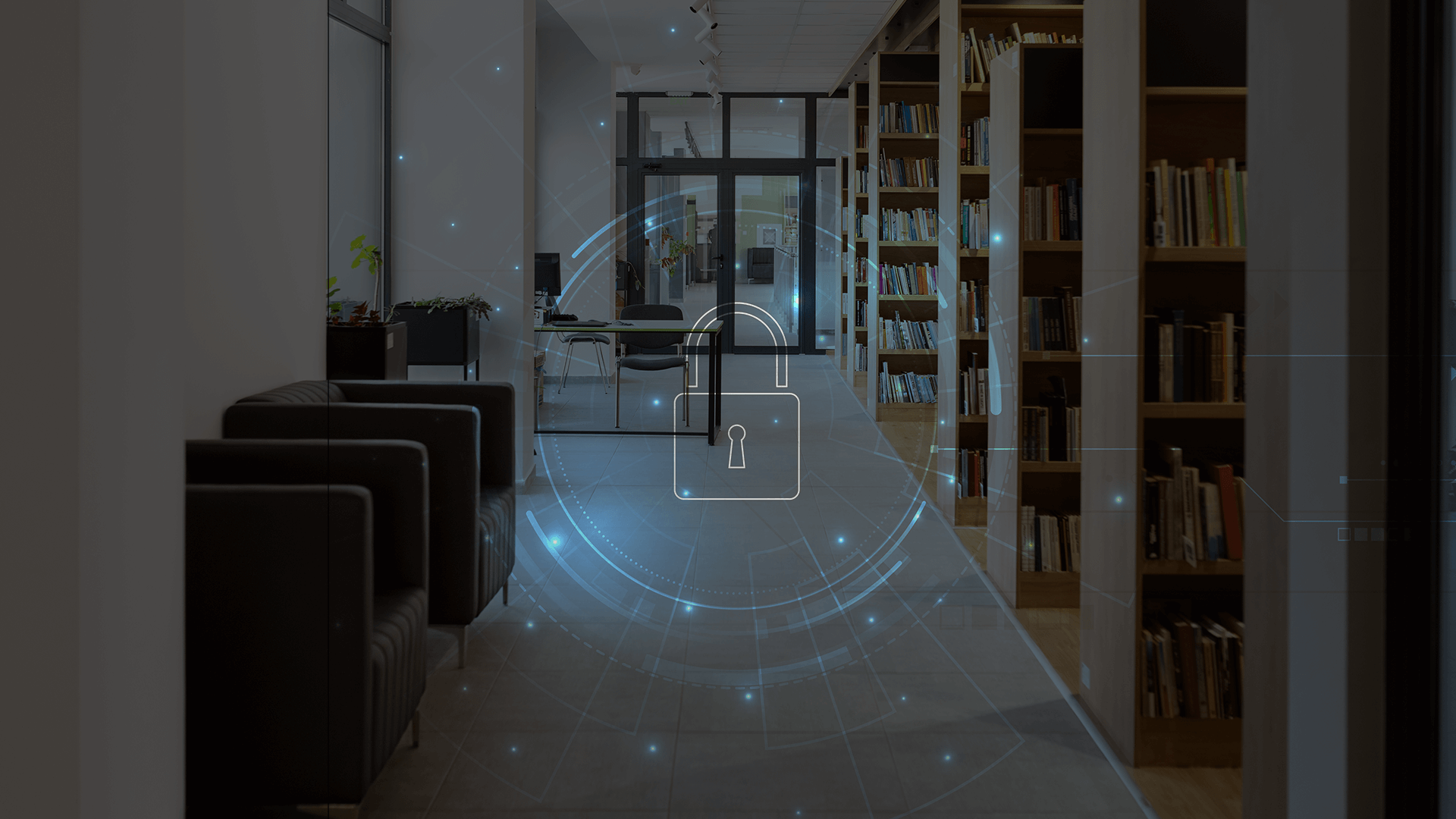Former commander, US cyber command joint operations intelligence command
Original Interview in October 2023
This interview was conducted by Abby Sonnier, Associate Cybersecurity Analyst at Consortium Networks.
Candice Frost’s commitment to national security includes three decades of public service. Her career in intelligence and cyber, includes operational tours of duty in the Balkans, multiple deployments to Afghanistan. Candice was instrumental in the integration of women into combat arms and served close to half of her career in infantry divisions. She retired on September 1st as a Colonel from her last position as the commander of the Joint Operations Intelligence Command at the US Cyber Command. She currently works at Raytheon.
A graduate of the United States Military Academy at West Point, Colonel (R) Frost holds masters degrees from Central Michigan University and the United States Army School of Advanced Military Studies. Her awards and decorations include the Bronze Star, Legion of Merit, and Combat Action Badge. She is also the recipient of the Billington Cybersecurity Workforce Development Award, Business Council for Peace Lifetime Mentorship Award, and the Lifetime Achievement Award in Muscatine, Iowa. She is a member of the Executive Advisory Council for AFCEA DC. Candice is an adjunct professor at Georgetown University teaching masters students in the Security Studies Program.
Starting at the beginning, what inspired you to join the military?
I had a high school guidance counselor who recommended that I look into West Point even though my small school in Iowa never had a woman go to any of the service academies. I did apply, but I didn’t tell anyone aside from the teachers who wrote my recommendation letters and my parents. I also received a poster that said, “The history we teach here was made by the people we taught.” I thought that was so monumental to say and to think that I would walk the same grounds and be in the same ecosystem as so many history-changing people was so cool.
Lo and behold, my senator called me to tell me I was accepted into West Point, but I missed the call because I was rocking out at a Bob Dylan concert. Regardless, I really enjoyed it once I started.
Could you talk a bit about being in that ecosystem and going from your small town in Iowa to such an intense, male-dominated space?
When I left Iowa, I was a bit of an introvert. I was a long distance runner so I had a lot of time to myself and I didn’t talk to a lot of boys. Going from that to a school where you’re constantly being challenged and you must depend on others and you’re one of very few women that were there, it taught me very quickly that it’s all about the people that are around you.
It was obvious the differences between the strengths that I had and what every individual had and what they brought to the group– I loved that. I loved the environment where it didn’t matter where you were from or how much money your parents had. Everyone was broken down to the same level and we had to build each other back up. That experience was transformative.
Although it was incredibly hard and there were plenty of days that I missed my family, I was fortunate to go through the academy before social media was as prevalent as it is today. I knew my friends were having fun in college, but I didn’t know what exactly I was missing out on so I didn’t have a ton of FOMO. I was able to be in the “here and now.”
That is something I would really like to emphasize– wherever you find yourself, just be in that moment and try to absorb the lessons you can from that experience because that is what will end up building the foundation of your future.
How do you think that coming up in that environment impacted how you started your career and how you navigated those first five years or so?
The number one thing that it taught me was to find the biggest challenge and go after that. Leaving the Military Academy, I looked at what was going to be the most challenging and pursued that. I went to Fort Bragg (now Fort Liberty) and the 82nd airborne division which was known as being a really tough place that would grind you, but also teach you some important lessons.
I really stepped up to the challenge, including the challenge of stepping into an incredibly male dominated workforce. It was tough and really put me outside of my comfort zone, but it also taught me how to adjust and adapt.
That would be my advice to people: whatever your work environment is, find something that is initially really tough. You’ll be placed way outside of your comfort zone but that, especially at the start of your work career, is really good because it will teach you those lessons that you need to be a lifelong learner.
Doing that– challenging myself– in the 82nd Airborne and then the 25th Infantry Division with subsequent deployments to Bosnia and twice to Afghanistan, provided me with the lessons on how to lean forward and lean into the experience of the environment I was in even if I wasn’t formally taught.
You have a dual degree in American Politics and Systems Engineering. Do you think that having both the STEM and liberal arts background impacted your perspective and changed the way you make decisions?
Studying an engineering degree while also understanding geopolitical consequences provides a much broader swath of people I can not only explain answers to, but also work with. I often find myself in rooms with many different engineers and understanding the way they view the world whether mathematically or algorithmically lets me work in lockstep with them. At the same time, I can walk into another room with a substantive number of political scientists or others working in a more creative environment and do the same. It has helped me be a translator between both sides and explain how these challenging emerging technology topics like artificial intelligence and machine learning will impact the future of our geopolitical world.
How did you transition from military intelligence to being a senior leader in the U.S. Cyber Command at the Joint Intelligence Operations Center (JIOC)?
I came up in the SIGINT world within the military intelligence community and, two decades later, I am looking at a totally transformed information environment. I love to tell my students that because where you start your career cannot predict where you’ll end up because in our environment, so much is changing so often.
I found that I was able to pivot into Cyber Command because I stayed incredibly curious. I set up the cyber branch when I was in the Human Resources arena in Fort Knox, Kentucky, and I always said that this is a truly emerging area in the national security space that I would love to not only start, but to become a part of. I was fortunate that when people asked, “Hey, who wants this job?” I was able to raise my hand as quickly as possible.
I would love to talk about something you are so obviously passionate about now. What do you think is the key to mentorship and developing those relationships?
Mentors come in many different shapes and sizes. To use an Olympic analogy, you have your bronze, silver, and gold mentors. Your bronze mentors are the ones that are either working with you or are in your arena right now. The silver ones are going to help you over the next five years. Then, there are those rare gold mentors that are there throughout your career.
There are many kinds of formal mentorship programs in many different job arenas and I would say to jump into them if you can, though they aren’t always the most successful. To find a sticky mentor, one that sticks with you and truly provides sage guidance rather than a Xerox copy of themselves, you have to lean in and express a lot of care. You have to find a connection.
How I’ve done this throughout my career is by listening. When I was in the military there was this phenomenal guy who was one or two ranks above me and every time I heard him speak, I wanted to know everything he had to say. I wanted to know what juice he drinks, what he eats– I was just insatiably curious about what he had to say and by asking questions, I would just further my desire to build my career to be a reflection of things he had done. He ended up becoming a really great mentor of mine because he was also insatiably curious and we had that kind of communication back and forth. Sometimes we try to reach out to the person that’s at the very pinnacle of the food chain but often it’s a person that’s one or two steps ahead of you that can provide the best mentorship.
Another arena I try to tell people to lean into, especially young women, is to try and find a mentor that doesn’t always look like you, walk like you, and talk like you. When my children were much younger I tried a lot to mentor women who were trying to maintain a career while having a family and basing the relationship on that. On the flip side, though, there are many mentors that are concerned primarily on the career side. That’s why you have to find mentors in different arenas.
Who is one of your most pivotal mentors?
One of my most influential Gold Star mentors is someone I didn’t take the advice of. She would constantly mentor me with open-ended questions, almost like the Socratic method of a good college professor.
A particular time I went to her was when I was thinking about the School of Advanced Military Studies, a military planning school that taught officers how to take tough problems and plan those things out to the operational and campaign level. Together we mapped out my career and she laid out all of the problems of me going to the school. She advised me against going, but at the same time, told me I had to go with my gut. Luckily, I went to the school and was able to immediately put those lessons into practice when I was deployed to Afghanistan shortly after.
She is a great example of finding a mentor that isn’t out to make you a Xerox copy of themself. You don’t want someone who is going to say you need to do XY and Z to be successful and to be just like me. Find someone who offers real, good advice and tells you the full story and potential consequences of decisions that you make.
Lastly, make sure that the mentors you have are really honest with you. I have had a couple mentors who weren’t shy to say “Hey, you really messed up there.” I needed that, and I needed them to help me figure out how to get past it. A mentor isn’t just there for your celebrations, they’re also there to help you dust yourself off when you tumble and fall.
Do you have any final thoughts to leave us with?
One of the biggest arenas that I mentor in at the moment is getting people under the cyber umbrella. The cybersecurity tent is large enough for everyone. People are so often intimidated by the idea of cybersecurity that they miss what it truly is. You don’t have to fit the coder/hacker mold– you just have to jump in, take hard jobs, and figure out where you fit in the big picture. At the end of the day it’s about the safety of our nation. If we don’t have variation in people then we’ll come to a halt as a community. The more people we can get from various backgrounds, diverse perspectives, it’s going to make this arena safer and it’ll make the products of the future even better.


